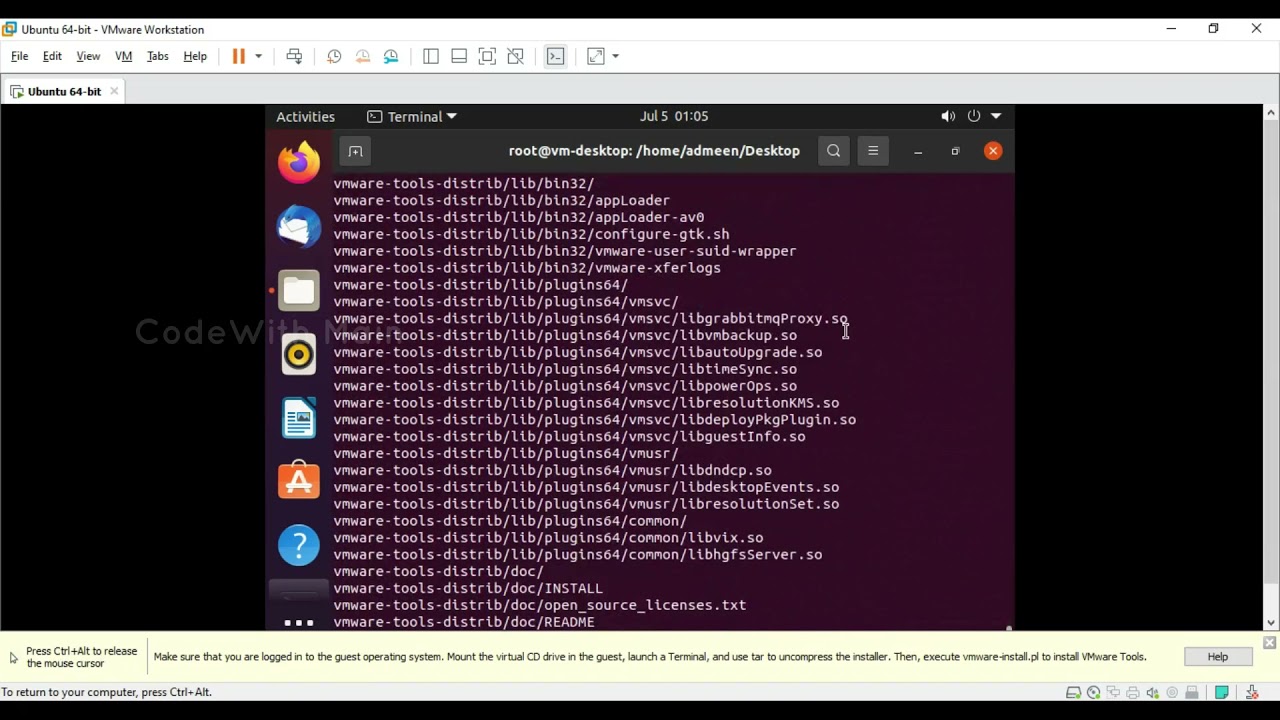
It includes a number of tools, such as a virtual network driver to improve network performance, a time synchronization utility to keep the guest operating system’s clock synchronized with the host, and a utility to improve the display resolution and colors of the guest operating system. For those of you who didn’t know, VMware Tools is a suite of utilities that enhances the performance of the virtual machine’s guest operating system and improves the management of the VM. What this command does is extract the package to a temp directory.In this tutorial, we will show you how to install VMware Tools on Ubuntu 22.04 LTS. Once the terminal is opened, enter the following command and press the enter button. Now open the Ubuntu terminal by pressing “Ctrl + Alt + T” or by going to the dash and typing “terminal”. It will look something like the below image.ģ. After mounting VMware tools to the virtual CDROM, a window will open showing you the contents of the VMware tools image (ISO).

To do that, navigate to “Player -> Manage” and select “Install VMware Tools” to automatically mount the VMware tools image to your virtual CDROM.Ģ. To start with, we have to mount VMware tools to a CDROM. Note: The commands shown here are case sensitive, pay attention while reproducing them.ġ. Installing VMware tools in Ubuntu is really simple, all you have to do is to issue a couple of commands, and you are done installing VMware tools in Ubuntu. and sharing files and folders between guest OS and host OS, improving graphical performance, drag and drop support, etc.Īpart from all these, installing VMware tools greatly increases speed and efficiency of the guest operating system by synchronizing it with the host operating system. The important thing that VMware tools does is that it will integrate your guest operating system with the host operating system so that you can do all sorts of complex tasks like sharing hardware devices like printer, Bluetooth, Wi-Fi, etc. Setting up a guest operating system inside a host operating system using VMware is relatively easy, but managing and scaling the installed guest operating system is totally a different issue. If your Ubuntu guest doesn’t come with VMware Tools installed, here is how you can get it done.


Actually, VMware tools are installed by VMware player automatically, but sometimes VMware may fail to install those essential tools due to reasons like crashing, network connectivity, etc.


 0 kommentar(er)
0 kommentar(er)
